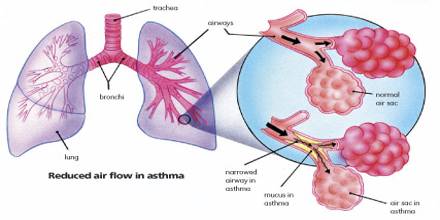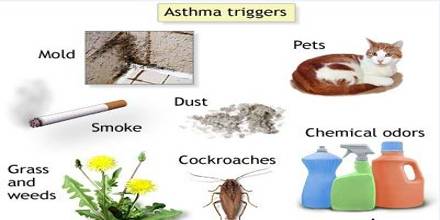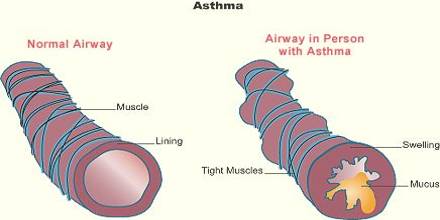Asthma Chronic Disease
Asthma is a chronic disease concerning the airways in the lungs. These airways, or bronchial tubes, consent air to come in and out of the lungs. Asthma is a situation in which your airways thin and enlarge and fabricate extra mucus. This can craft breathing hard and trigger coughing, wheezing and shortness of breath. For some people, asthma is a slight nuisance. For others, it can be a foremost trouble that interferes with day by day activities and may lead to a life-threatening asthma attack. It can reason serious wheezing and breathlessness, known as asthma attacks. There’s no cure, but the majority people can control their symptoms
There is no treatment for asthma, but once it is correctly diagnosed and a cure plan is in place you will be capable to manage your situation, and your eminence of life will develop. Asthma affects people of all ages, but it most frequently starts during childhood. In the United States, more than 25 million people are known to have asthma. About 7 million of these people are children.

Symptoms
People with a family history of allergies or asthma are further flat to mounting asthma. Many people with asthma also have allergies. This is called allergic asthma.
Occupational asthma is caused by inhaling fumes, gases, dust or other potentially dangerous substances while on the job.
Childhood asthma impacts millions of children and their families. In fact, the majority of children who develop asthma do so before the age of five.
Asthma symptoms differ from person to person. You may have uncommon asthma attacks, have symptoms only at certain times — such as when exercising — or have symptoms all the time.
Asthma signs and symptoms include:
- Shortness of breath
- Chest tightness or pain
- Trouble sleeping caused by shortness of breath, coughing or wheezing
- A whistling or wheezing sound when exhaling (wheezing is a common sign of asthma in children)
- Coughing or wheezing attacks that are worsened by a respiratory virus, such as a cold or the flu
Signs that your asthma is possibly worsening include:
- Asthma signs and symptoms that are more frequent and bothersome
- Increasing difficulty breathing (measurable with a peak flow meter, a device used to check how well your lungs are working)
- The need to use a quick-relief inhaler more often

Causes
It isn’t comprehensible why some people get asthma and others don’t, but it’s possibly due to a permutation of environmental and genetic (inherited) factors.
Asthma triggers
Exposure to different irritants and substances that trigger allergies (allergens) can trigger signs and symptoms of asthma. Asthma triggers are different from person to person and can include:
- Airborne substances, such as pollen, dust mites, mold spores, pet dander or particles of cockroach waste
- Respiratory infections, such as the common cold
- Cold air
- Air pollutants and irritants, such as smoke
- Certain medications, including beta blockers, aspirin, ibuprofen (Advil, Motrin IB, others) and naproxen (Aleve)
- Strong emotions and stress

Diagnosis
A lung test called spirometry measures how much air you can breathe in and out. The results will help your doctor decide whether you have asthma and how severe it is. He may also recommend allergy testing to pinpoint some of your triggers.
Risk factors
A number of factors are thought to increase your chances of developing asthma. These include:
- Having a blood relative (such as a parent or sibling) with asthma
- Having another allergic condition, such as atopic dermatitis or allergic rhinitis (hay fever)
- Being overweight
- Being a smoker
- Exposure to secondhand smoke
- Exposure to exhaust fumes or other types of pollution
- Exposure to occupational triggers, such as chemicals used in farming, hairdressing and manufacturing.
















